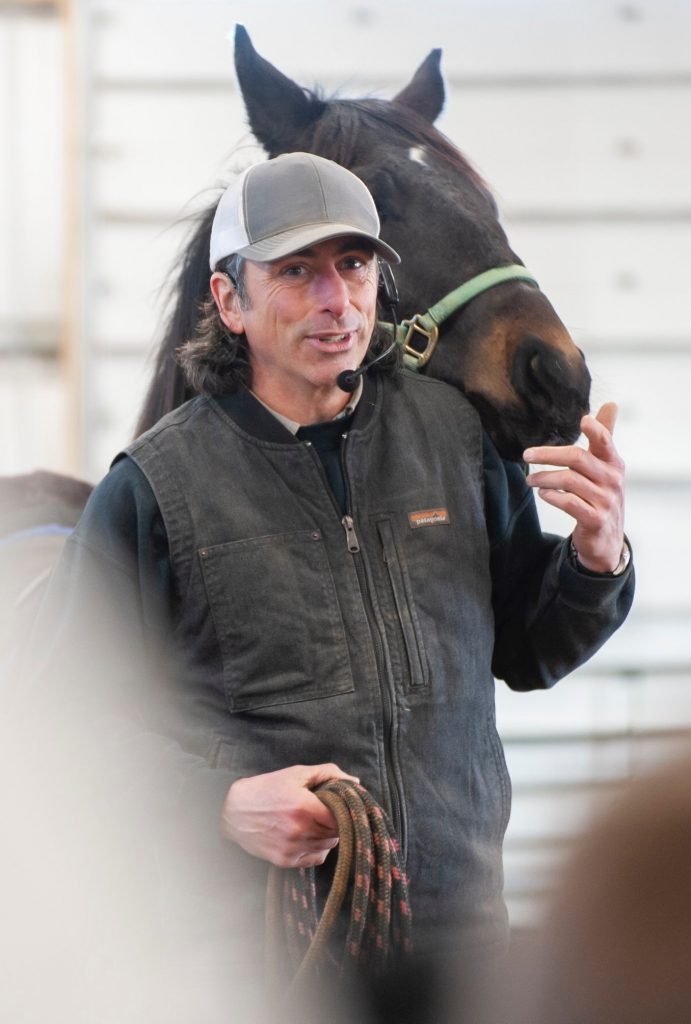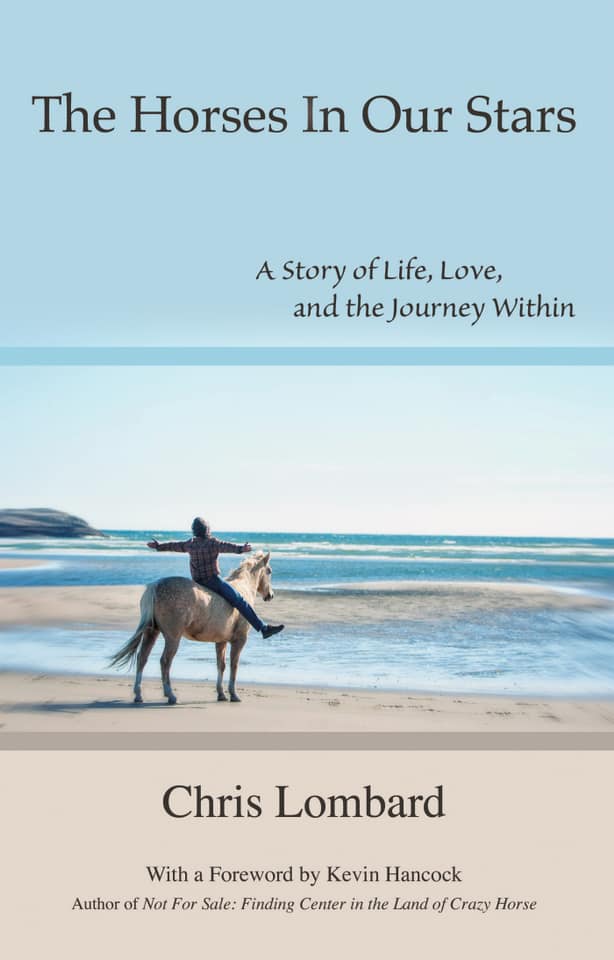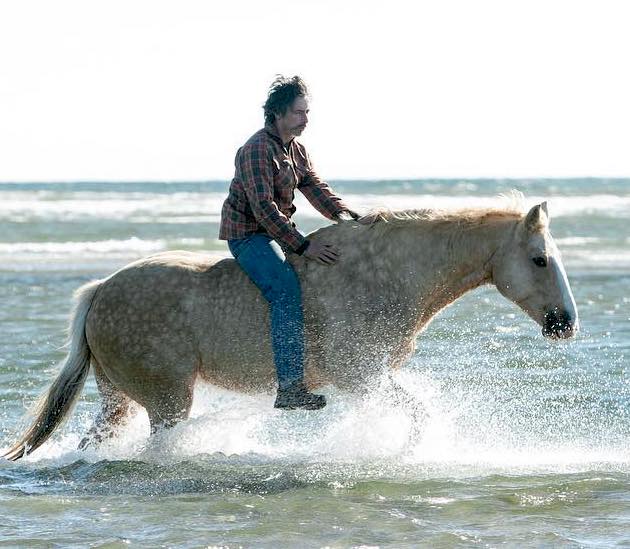 Editor’s Note: Chris Lombard is an accomplished horseman in Maine, a special guest at the 2019 Best Horse Practices Summit, and the author of two books: Land of the Horses and Horses in Our Stars. Find out more here.
Editor’s Note: Chris Lombard is an accomplished horseman in Maine, a special guest at the 2019 Best Horse Practices Summit, and the author of two books: Land of the Horses and Horses in Our Stars. Find out more here.
The master in the art of living makes little distinction between his work and his play, his labor and his leisure, his mind and his body, his information and his recreation, his love and his religion. He hardly knows which is which. He simply pursues his vision of excellence at whatever he does, leaving others to decide whether he is working or playing. To him he’s always doing both. James A. Michener
Chris Lombard writes:
Many times over the years I have been asked about the different ways to start a possible career in working with horses. These are some thoughts I’ve gathered on the subject.
1) Nurture your deep love and passion for horses. This will be the inspiration that pulls you forward into where you need to go and what you need to do. Love and passion are the base of all great work and accomplishment.
2) Be willing to work for free in the beginning. For my first year and a half as a trainer I wasn’t paid a thing. Then I moved up to where I was paid room and board. Then I got paid in room and board and tips. And then when I started training back here in Maine, I charged no fee for the first session with a new person and their horse, so there was no pressure on anything, and we could see if it would be a fit.
3) Be around as many horses as you can. This is a big one. Most people just have access to their own horse(s) or the horses at their local barn. I can’t stress enough how important it is to see, feel, and get to know as many horses as you can. Most horse professionals get their deepest experience from the many different horses they have been around.

Lombard’s latest book
4) Find someone who can watch over you as you learn. Sacrates said: “Learn from those that came before you, so you may come easy by what they labored for.”
When you’re learning from someone, you’re getting to start off with all the knowledge they’ve accumulated over their life. You still have to put in the time, effort, and hard work, there’s no shortcuts, but you might not have to make as many mistakes with someone watching over you. And make sure to ask “why.” A lot. Whenever someone asks you to do something and you don’t understand why, then ask. And keep asking until it makes sense in a deep way. A truly great instructor will love this, as it shows you want to have a deep knowledge of horsemanship.
5) Make sure you trust and feel comfortable with your teachers, and that they have the horse’s care and best interest as their priority. With all respect, there are many big-time trainers out there that I have a hard time watching. Why? Because ego, stature, money, and awards are more important it seems than how the horse is thinking and feeling. Dominance over horses is decreasing in a lot of modern-day training, but it is still ever-present in a lot of what is seen as high-level horsemanship. Above all else, we need to develop an eye for when a horse is being made to do something from pressure, versus when it is inspired to do something from its own choice.
6) Work with as many teachers as you can. Soak up all the knowledge and know-how from everybody and everything, and find what fits in for you, and combine it into your own way and style. Learn from everyone, but don’t try to be LIKE anyone. You are you. There’s no one like you. If you’re trying to be someone else, the horse will feel it and feel that you are off in some way. Have all ways as your way, being open to anything, with your own way leading the way.
NEVER STOP LEARNING. Always have beginner’s mind, ready to learn something new and let go of an old way. Stay humble and have beginner’s mind your whole life.
7) Work and practice on your own, too. Some of your greatest learnings will come when you are alone with the horse, finding your own way.
 8) Be willing to travel. It will not only expose you to different horses and the many different ways of working with them, it will help you to grow in ways that are valuable. The more you’re open to traveling, the more opportunities that will present themselves to you.
8) Be willing to travel. It will not only expose you to different horses and the many different ways of working with them, it will help you to grow in ways that are valuable. The more you’re open to traveling, the more opportunities that will present themselves to you.
9) Have patience, dedication, and perseverance. If you love horses and have a passion for being around them, it will all work out as it should. It will lead to something good and you will find your place. The many twists and turns are part of the fun of the journey. Work hard – for the horses and for the people that are helping you, but most of all, for yourself. You will get back what you put in. Don’t sell yourself short.
10) Let your love and passion guide you. There are many things that can push into that (time, fear, finances, injuries) but if you always make sure to nurture that love and passion that got you into this in the first place, it will lead you exactly to where you’re supposed to be.
11) BE THANKFUL! You are getting to be around horses. Always have gratitude for that. Be thankful and tell all those that help you that you are thankful to them, and make sure every horse knows how much gratitude you have for them. This is the big one. Gratitude leads to more of what you’re thankful for.
Excellent article! As always, excellent writing from Chris Lombard. Want to print this out and pin it on my forehead. Thank you for posting and thank you for bringing him to BHP. Good move!